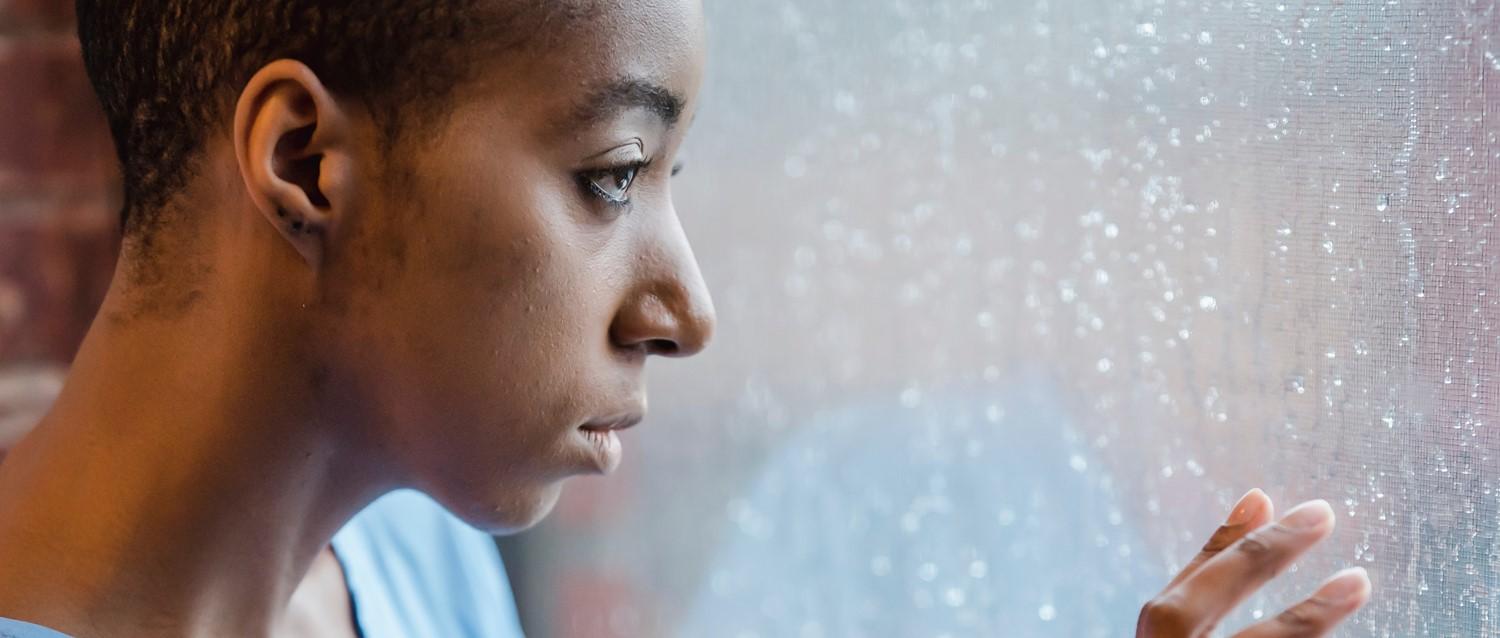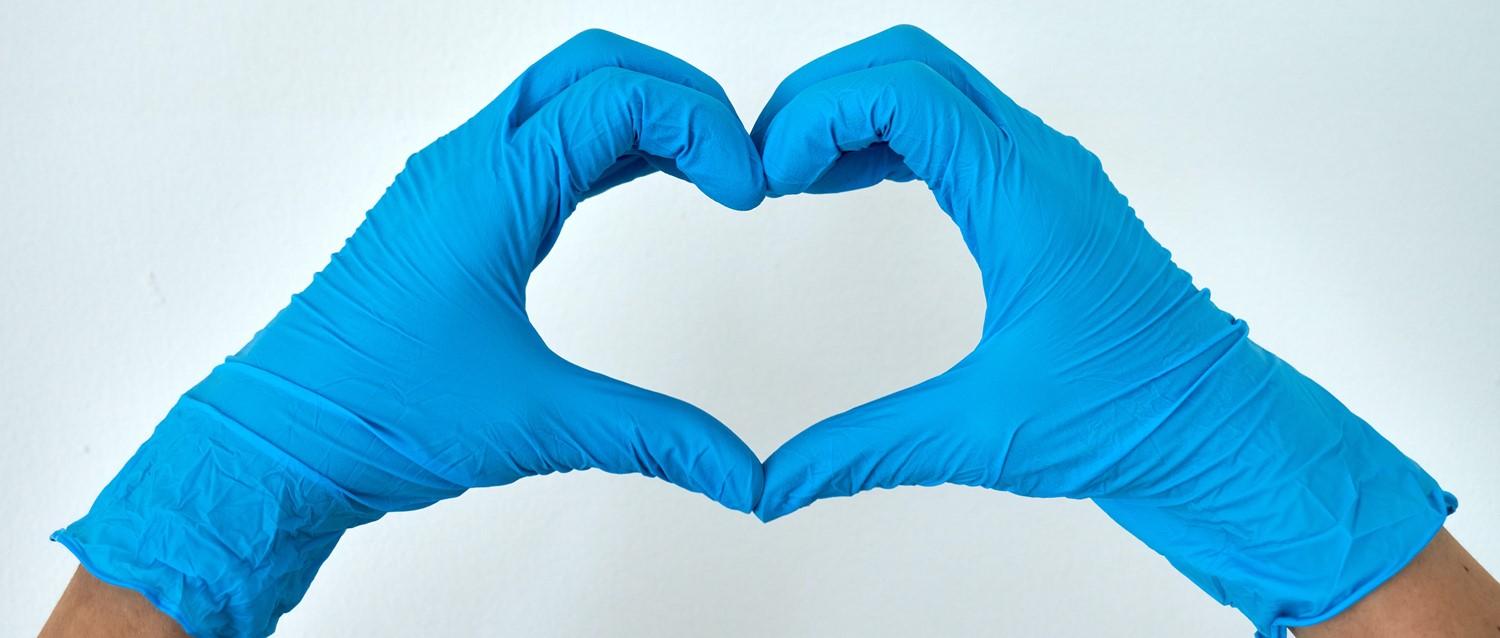
Aquagenic urticaria: living with an allergy to water
Peer reviewed by Dr Krishna Vakharia, MRCGPAuthored by Amberley DavisOriginally published 24 Oct 2022
- DescargarDescargar
- Compartir
Imagine that getting caught in a rain shower feels like falling into a stinging nettle bush, or not being able to cry without burning your cheeks. For people with water allergy, this is reality. So how is it possible to live with such an unusual condition?
En este artículo:
Seguir leyendo
What is aquagenic urticaria?
Aquagenic urticaria is a rare condition where skin contact with water causes a person to come out in a raised, itchy rash. Urticaria, otherwise known as hives, simply describes an allergic skin rash, which is itself a relatively common complaint. Aquagenic urticaria specifically refers to this reaction as a symptom of water allergy - and this is much more unusual.
People with aquagenic urticaria can be triggered by rain, snow, sweat and tears - water sources that most of us needn't worry about.
This allergic reaction doesn't appear to be affected by the temperature of the water, nor by how acidic or alkaline it is.
Symptoms of aquagenic urticaria
What happens when water touches your skin?
Within minutes you may develop:
A skin rash or raised, red bumps.
A burning sensation.
Itchiness.
What about drinking water?
In serious cases this might cause these side-effects:
A rash around your mouth.
Sibilancias.
Dificultad para tragar.
Symptoms tend to go away in 30 to 60 minutes. However, as water is so hard to avoid, self-care steps and treatment options are hugely important in improving a person's quality of life.
Seguir leyendo
How rare is aquagenic urticaria?
This allergy is so rare that there are fewer than 100 cases of aquagenic urticaria reported in medical literature1.
From this small pool of data, we know that aquagenic urticaria affects more women than men. We also know that this condition often starts during puberty2.
What causes aquagenic urticaria?
Aquagenic urticaria is as poorly understood as it is rare. However, research to determine the exact cause is ongoing, and there are a couple of popular theories:
Rather than an allergy to water itself, it may be chemicals in the water that act as allergens, triggering the immune system to release symptom-inducing histamines that attempt to fight the allergen.
The water may be interacting with naturally produced oils on the skin, known as sebum. An unusual interaction might produce a toxin that triggers the body to release histamine.
Selecciones de pacientes para Otras alergias

Alergias, sangre y sistema inmunitario
¿Cómo puede saber si tiene alergia al látex?
Aunque probablemente haya oído hablar de personas alérgicas al látex, es posible que no esté seguro de cómo se presenta una alergia al látex, o tal vez sospeche que usted mismo la padece. Cómo saber si tiene alergia al látex y si puede tratarse?
por Emily Jane Bashforth

Alergias, sangre y sistema inmunitario
Alergia a medicamentos
Medicines can cause allergic reactions. In this leaflet these reactions are called 'drug allergies'. In this instance the drugs referred to are medicines people take for their health. For example, antibiotics or anti-inflammatory painkillers rather than drugs of addiction. Allergic reactions can happen with prescribed medicines as well as those you have bought from a pharmacy. Drug allergies may be mild, moderate or severe. Some can come on in a matter of minutes. Others may take days or even weeks to develop. Some reactions are so severe they can be life-threatening. Mild reactions can sometimes be treated simply by stopping the medicine. Severe reactions usually require hospital admission.
por la Dra. Hayley Willacy, FRCGP
Seguir leyendo
What is the cure for aquagenic urticaria?
There's no cure for being allergic to water. Instead, the few people with this condition must try and limit their exposure to water, where possible, and take allergy treatments.
Treating the allergy
Comprimidos antihistamínicos
This is a common treatment for many types of allergies, including hay fever, that works by blocking the chain reaction that happens when your body releases histamine. Doctors usually recommend second-generation antihistamines, such as cetirizine and loratadine, as these don't cause drowsiness.
Skin barrier creams
These are applied directly onto skin, these can help to prevent water from seeping into skin and triggering an allergic reaction.
Medicación con esteroides
This is used to dampen down the immune response and stop histamine release.
Allergy medicine
Omalizumab is an injection that acts against the antibodies produced by the immune system, to prevent symptoms from flaring up.
Ultraviolet light therapy
Also known as phototherapy, this has been known to work in some patients. It works by toughening the skin to make it less sensitive to water.
Epipens
These are for those who have severe reactions such as anaphylaxis.
How do people live with aquagenic urticaria?
People with aquagenic urticaria have no problem with water inside their bodies - no one could live if their bodies rejected water internally.
This extremely rare condition is all about how water interacts with the skin. Completely avoiding exposure to water isn't possible, but being careful can help to make daily life easier:
Checking the weather forecast
Most people dislike getting caught in the rain, but for people with aquagenic urticaria, this can feel like falling into a bush of stinging nettles.
Taking brief, infrequent showers
Washing can't be completely avoided, but it's possible to shower less by substituting alcohol-based cleaners.
Managing sweat
Sheltering from extreme heat and avoiding sweat-inducing activities may help.
How do people with aquagenic urticaria eat and drink?
For most people with the condition, drinking water isn't an issue. However, some find that their lips and the inside of their mouth swells, itches, or burns - making drinking a necessary but painful daily experience.
The only ways to manage this is by relying on treatments and by avoiding foods that have a high-water content, such as tomatoes, cucumber, and watermelon.
Para saber más
Historia del artículo
La información de esta página ha sido revisada por médicos cualificados.
24 Oct 2022 | Originally published
Autores:
Amberley DavisRevisado por expertos
Dr. Krishna Vakharia, MRCGP

Pregunte, comparta, conecte.
Explore debates, formule preguntas y comparta experiencias sobre cientos de temas de salud.

¿Se encuentra mal?
Evalúe sus síntomas en línea de forma gratuita